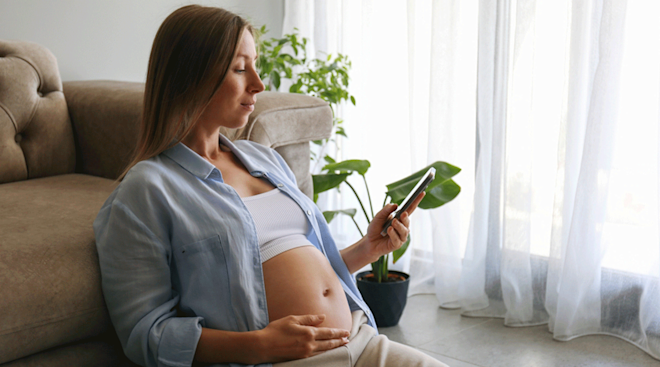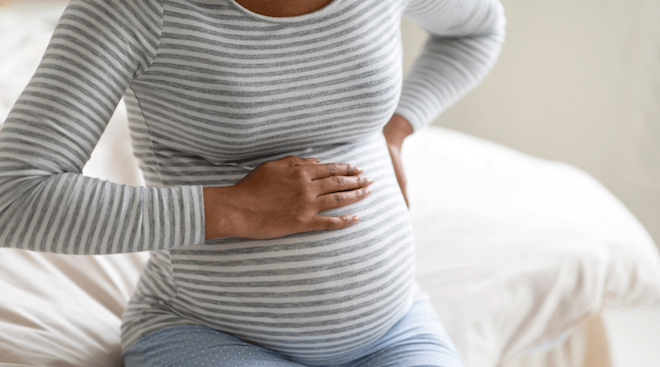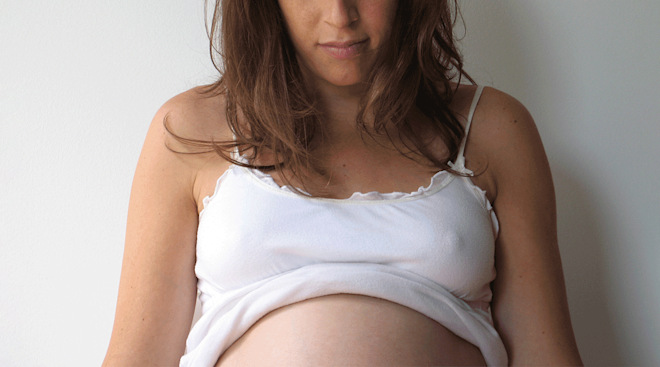Pregnancy Fatigue: Why You're Exhausted—and What to Do About It
Let’s be real—making a human from scratch is a big task that takes a lot of energy. No wonder you’re ready for a nap by noon! But how soon will it be until you feel normal again—and what are some things you can do to feel more awake? Here, ob-gyns share everything you need to know about pregnancy fatigue, including tips to combat it.
Extreme fatigue, or lack of energy, is very common in pregnancy. “Many of the patients I see say they need naps to make it through the day when they had never needed a nap before,” says Leena Nathan, MD, a board-certified ob-gyn at UCLA Health.
Moreover, one study found that 94 percent of women struggle with fatigue during pregnancy.
Fatigue in early pregnancy is primarily caused by a sudden rise in hormones, most notably progesterone, says Nathan. On top of that, your body’s working overtime to help baby grow. “Blood volume increases, blood vessels increase and expand and the heart pumps harder and faster—all of this can contribute to fatigue,” says Nathan.
What’s more, if you’re having trouble sleeping or experiencing nausea and vomiting, pregnancy exhaustion may feel even more intense. Fatigue during pregnancy can also be caused by pregnancy anemia, in which case your provider might recommend iron supplements or dietary changes, notes Cleveland Clinic.
Many pregnant people start to feel pregnancy fatigue early on in the first trimester. “Some people are super-sensitive to the rise in pregnancy hormones and that may be their first indication they might be pregnant,” says Suzanne Bovone, MD, a board-certified ob-gyn at Pediatrix Medical Group in San Jose, California. According to the American Pregnancy Association (APA), fatigue is common during the first trimester, often tapers off during the second trimester and can start up again in late pregnancy, primarily due to the extra weight you’re carrying. But, of course, keep in mind that everyone is different, and it’s normal to feel fatigue at any stage of pregnancy.
Simply put, pregnancy fatigue can make you feel sluggish, says Nathan. “A newly expecting mom will want to sleep much more than usual,” she says. “There may be less motivation than usual to complete daily tasks.” As Bovone puts it, “You feel like you got hit with a ton of bricks out of the blue—you are just so fatigued and need to rest.”
Luckily, there are many ways you can help treat symptoms of pregnancy fatigue. Here are some expert-recommended tips to try:
- Take naps. It might seem obvious, but it’s worth saying: If you can, try to lay down and rest or nap. Aim for about 20 to 30 minutes of rest, says Bovone. “Try not to nap too long or too late in the day as it can disrupt your sleep at night,” she adds.
- Stay hydrated. Dehydration can intensify tiredness, so steadily drinking water throughout the day will help maintain your energy levels. The American College of Obstetricians and Gynecologists (ACOG) recommends drinking eight to 12 cups of water each day during pregnancy to help keep you and baby hydrated.
- Eat more often. Eating small, frequent meals and snacks throughout the day can also help combat pregnancy fatigue, Bovone says. “I’m a believer in getting your nutrients from food—the concept of using food as medicine. Have a well-balanced diet and limit processed foods,” she says.
- Move your body. Staying physically active will also help with sluggish feelings during pregnancy, says Nathan. Exercising sends oxygen and nutrients to your body, notes Mayo Clinic, which provides that much-needed energy boost. ACOG recommends pregnant people get at least 150 minutes of moderate-intensity aerobic activity every week, which is about 20 minutes of movement daily.
Again, pregnancy fatigue might hit hard in the first trimester, but many pregnant people start feeling much less tired by the second trimester—around the same time the placenta has finished forming. Unfortunately, your tiredness may resurface: “Fatigue can hit again in the third trimester, as baby is gaining weight and it becomes harder to move and sleep,” says Nathan.
In most cases, pregnancy fatigue is completely normal and expected—but that doesn’t make it any less of a struggle. “Going from feeling well-rested and active to feeling incapacitated is hard,” says Bovone. “Add in nausea and vomiting and that can make each day last forever.” This can have a significant impact on mental health. If you’re experiencing depression, anxiety or extreme lack of motivation, it’s best to talk to your provider. In some cases, extreme fatigue can also be a sign of a more serious condition. Nathan says it’s important to reach out to your doctor if you notice any bleeding, dizziness, fainting, shortness of breath or heart palpitations.
Pregnancy fatigue is an irritating, but extremely common pregnancy symptom—but, thankfully, it’s temporary. By the time baby arrives, your body should start feeling surges of energy again. You know, just in time for sleepless nights!
Please note: The Bump and the materials and information it contains are not intended to, and do not constitute, medical or other health advice or diagnosis and should not be used as such. You should always consult with a qualified physician or health professional about your specific circumstances.
Plus, more from The Bump:
Suzanne Bovone, MD, is a board-certified ob-gyn at Pediatrix Medical Group in San Jose, California, with over 20 years of experience. She earned her medical degree from UCLA Medical School.
Leena Nathan, MD, is a board-certified ob-gyn at UCLA Health. She earned her medical degree from Stanford University School of Medicine.
Sleep Science, Fatigue and Sleep Quality in Different Trimesters of Pregnancy, 2021
Cleveland Clinic, Anemia During Pregnancy, May 2022
American Pregnancy Association, Fatigue During Pregnancy
American College of Obstetricians and Gynecologists (ACOG), How Much Water Should I Drink During Pregnancy?, October 2020
Mayo Clinic, Exercise: 7 Benefits of Regular Physical Activity, August 2023
American College of Obstetricians and Gynecologists (ACOG), Exercise During Pregnancy, March 2022
StatPearls, Embryology, Placenta, May 2023
Learn how we ensure the accuracy of our content through our editorial and medical review process.
Navigate forward to interact with the calendar and select a date. Press the question mark key to get the keyboard shortcuts for changing dates.





















































